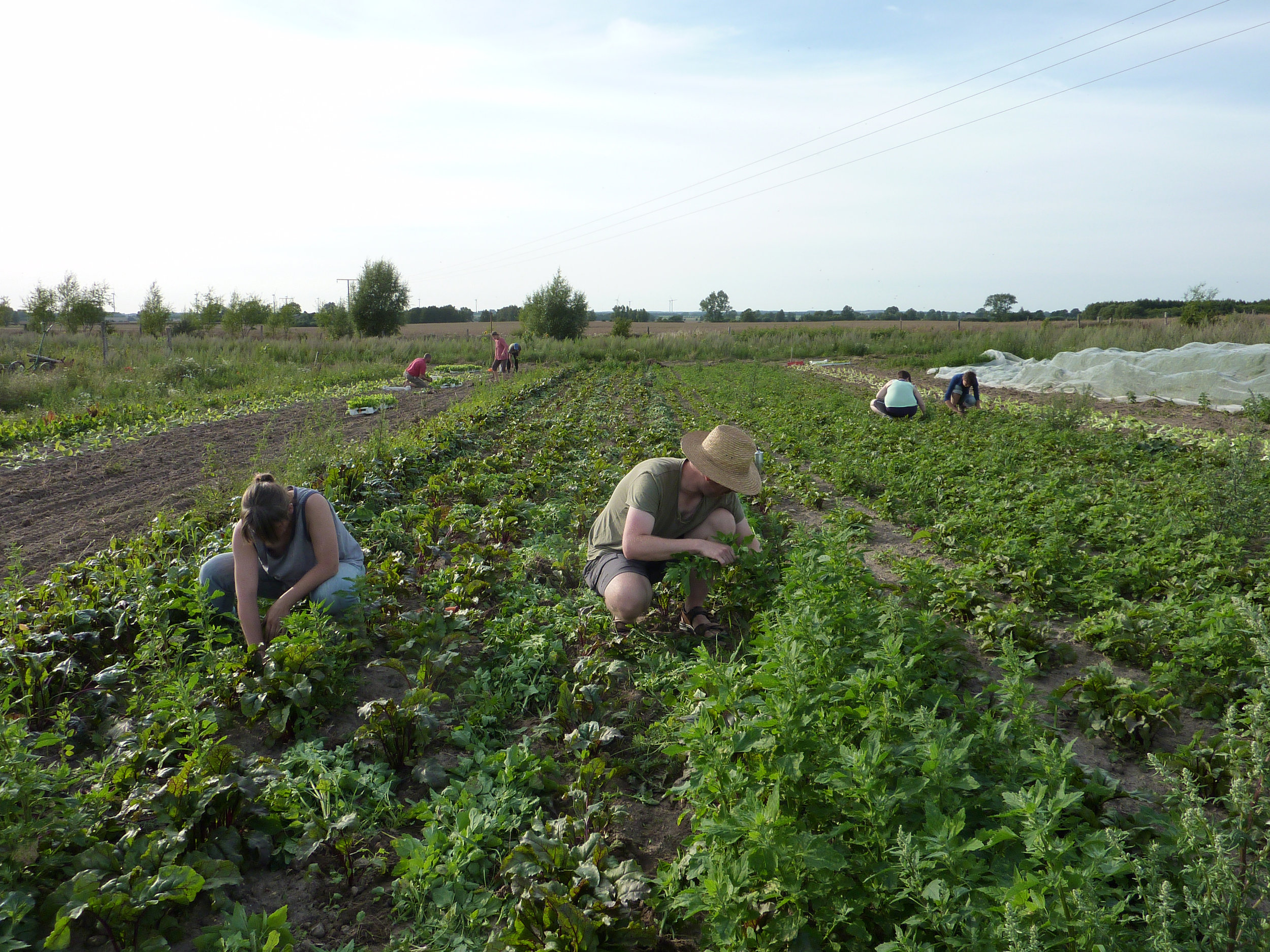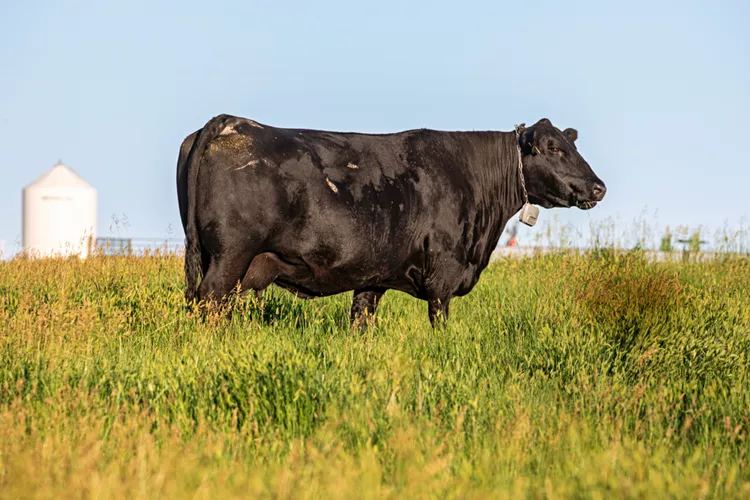PICTURED: Members of an organic farming community near Rostock, Germany Photo credit Wikimedia CC 4.0
In a recent paper published in Nature Communications that models the production and environmental impacts of the agriculture and livestock food systems of England and Wales if switched entirely to organic farming practices, the authors found that such a conversion would result in undesirable outcomes with current technology and practices.
Building on data from multiple examinations done in the past, the authors claim they have created the most comprehensive national-scale assessment to date of the potential land use and greenhouse gas emissions (GHG) of a wide-scale conversion to organic farming.
It’s under this claim where Guy Kirk, from Cranfield University, UK, predicts a 40% drop in total food production – expressed by metabolic energy, and a similar drop in human-edible protein – particularly from the loss of pork and poultry production.
Furthermore, the drop in production would result in “shortfalls in most agriculture products,” and that the overseas land needed to make up for that lack in production would have to be five times greater than all the land utilized in Kirk’s model for livestock and agriculture in England and Wales.
Greenhouse gas potential
Part of what limits the potential of organic agriculture is firstly a limit in the amount of livestock feed produced resulting from a drop in overall food production. Arable land needed for livestock feed must be converted to other crops in order to avoid food shortages.
Secondly, the lack of livestock feed and therefore the lack of livestock, means a reduction in available nitrogen sources for organic fertilizer. Part of what makes the label of organic food is the indication that no synthetically produced fertilizer was used in its making.
The trouble comes when you realize that nitrous oxide, a greenhouse gas far more powerful than carbon dioxide, enters the atmosphere during fertilizer production, and that more nitrous oxide is released during organic production than synthetic production.
In the paper under the section marked GHG production per unit, Kirk explains all the pitfalls that come when attempting to utilize reduced livestock and organic agriculture as means to achieve GHG reduction. These result primarily from attempting to make up deficits of necessary products that make up current agriculture production systems, for instance fertilizer.
Indeed, in the abstract, land-use of converting conventional agriculture production systems to organic ones would result in a climb of 170% of the current GHG emissions due to the need for making up the drop in overall food production by overseas land-use and imports.
Also in the abstract, the authors claim that a reduction in meat consumption could play an important role in reducing GHG emissions in England. However they seem to contradict themselves when they add in their paper that the total reduction in GHG emissions predicted from a change to organic agriculture before accounting for overseas land use would only see a 4% reduction in livestock emissions.
4% in the face of many of the catastrophic predictions for global climate change, and of the emissions coming out of places like China, Brazil, India, Ethiopia, etc. isn’t likely much more than a drop in the bucket, especially as the GHG emissions would eventually rise due to overseas land use as mentioned earlier.
Worse still, if you believe that within the domain of world agriculture lies a significant opportunity to reduce the effects of human-caused climate change, Kirk concludes “the most comprehensive national-scale assessment” for potential land-use and GHG changes by remarking “it is unlikely that there exists any single approach to achieve environmentally sustainable food production”.



